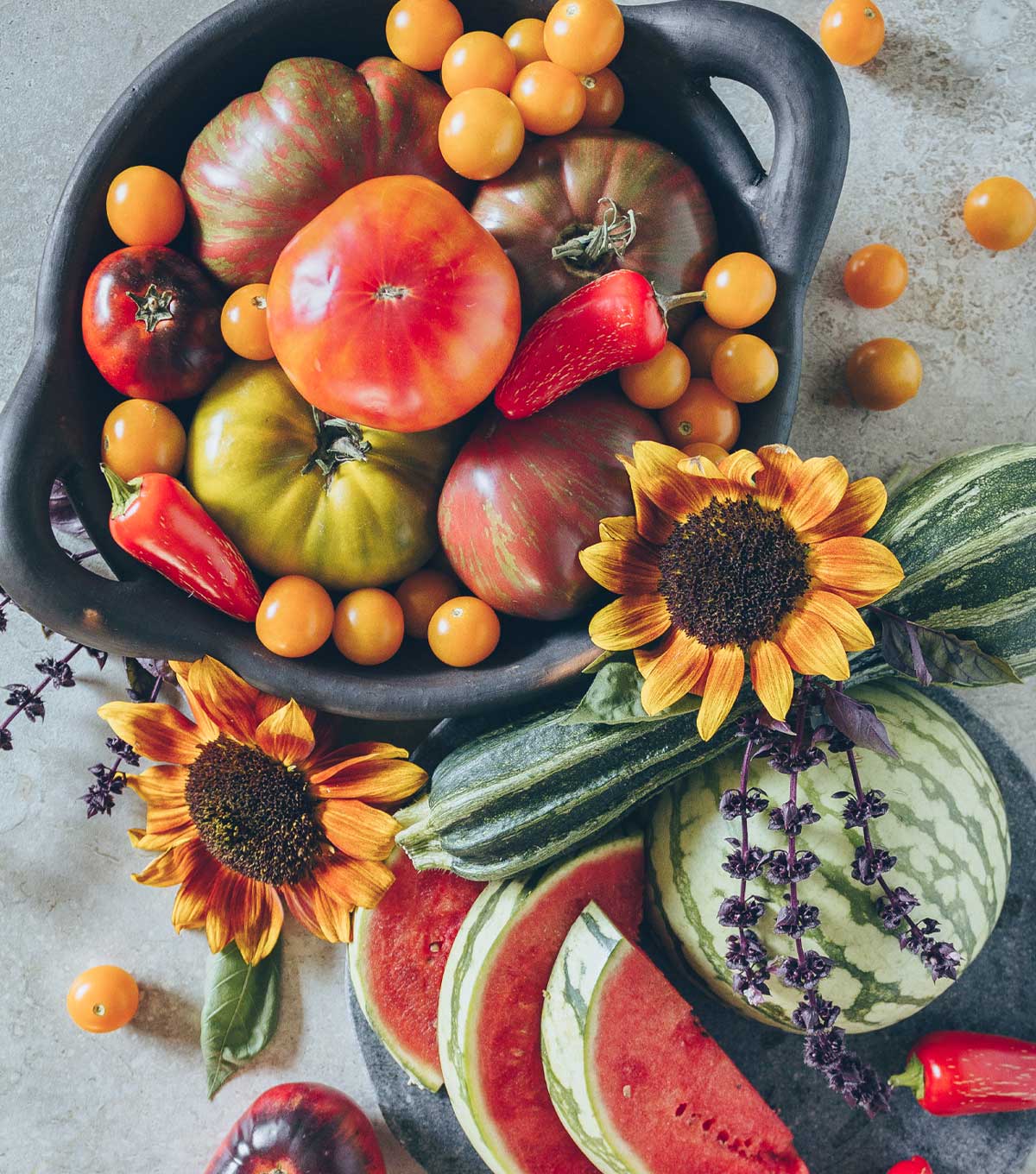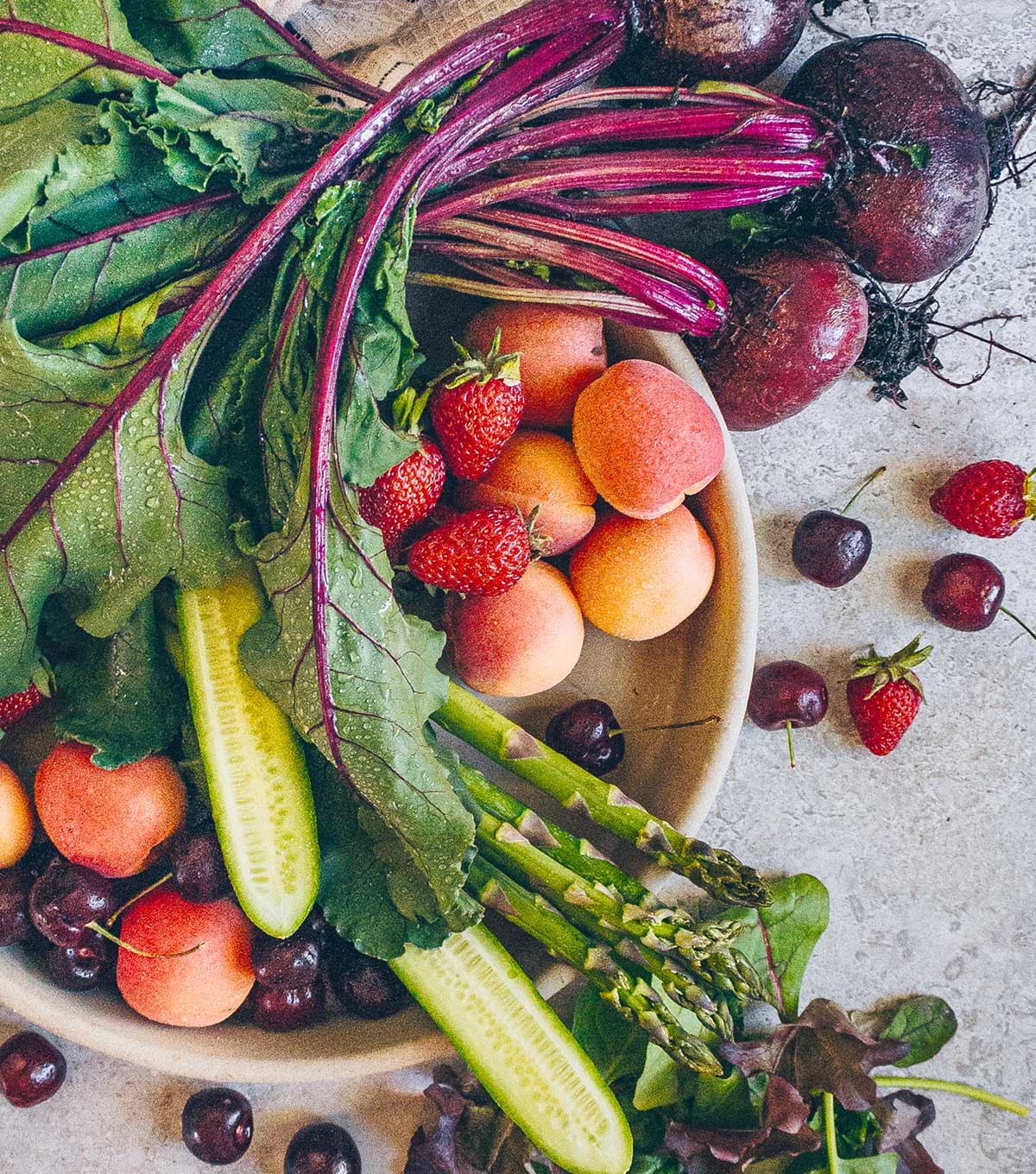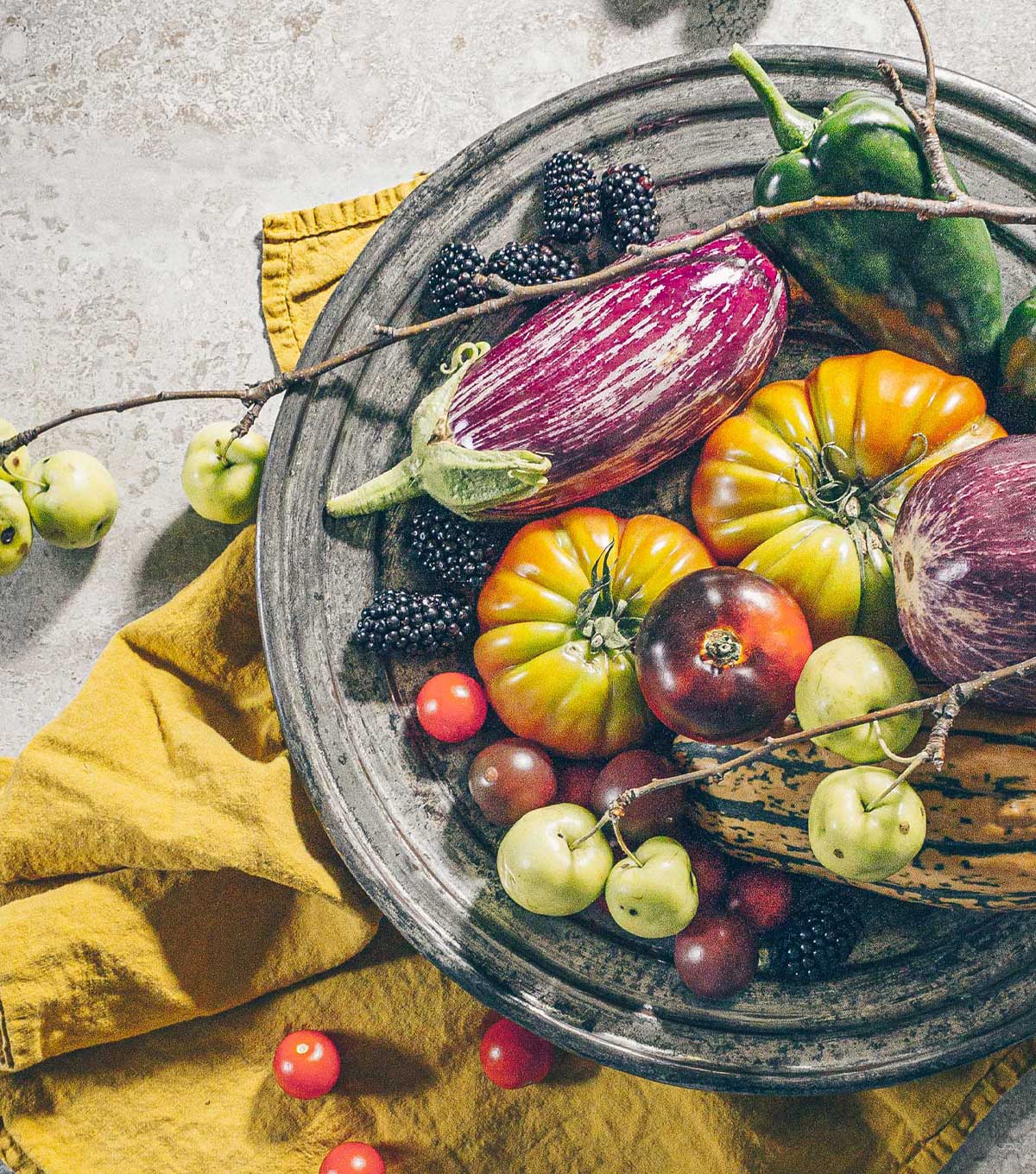Eating With The Seasons: August

August is a bountiful but bittersweet month. The garden is at its height of production, overflowing with tomatoes, peppers, eggplant, cucumbers, and zucchini. Flowers and herbs abound and the birds and the butterflies and the bees are ecstatic. But as you look up from filling another bowl with cherry tomatoes, you notice that the winter squashes are also nearly ready… and you know. You know that this is the last stretch of summer. The heat of August will soon be replaced by cool nights and colored leaves and the smell of woodsmoke in the air.
So drink it all in. Now is the time to enjoy all the summer fruits and vegetables from the garden or from the farmer’s market. Make some preserves or pickles. Go on a picnic. Pick some flowers. Go for a swim. I wish you the best of August.
Seasonal Eating
As the world around us shifts with the seasons, so do the foods that are harvested. It should only make sense then, that our eating follows this same pattern. Seasonal eating is when you eat foods at the time of year that they are harvested. This is something that we tend to do naturally, eating pumpkin in fall for instance, or asparagus in spring. But did you know that seasonal eating throughout the year can improve your health and the environment?
The Benefits Of Seasonal Eating
In Season Produce Tastes Better
Eating foods that are harvested when they are ripe in their local growing season simply taste better. Out of season produce on the other hand is picked early, stored in cold storage for months, and sometimes travels long distances to reach you. In season fruits and vegetables are allowed to ripen fully before being harvested, which improves not only their flavor, but their nutrition too.
Eating Seasonally Improves Nutrition
Allowing produce to ripen fully before harvesting maximizes its nutrient availability (the amount that your body is able to process.) It is at it’s maximum right after harvest, so eating fruits and vegetables right after they are picked is better for you. As the time from harvest increases, the nutrient availability decreases, sometimes by as much as 30-50%.
Seasonal Eating Supports Gut Health
Eating seasonally means that you are eating foods as they become available from season to season, or month to month. This means that instead of eating the same foods all year round, you are eating a varied mix, diversifying your diet. Studies have shown that human microbiomes change in accordance with the seasons, and that eating seasonally can help promote proper gut bacteria and improve health. For more on the importance of gut health click here.
It Is Better For The Environment
Eating out of season and non-local produce not only decreases the nutritional value of the foods, it also increases the carbon footprint of them. Out of season produce can be kept in cold storage for months, using energy to preserve it. Non-local produce often must be flown or shipped long distances to reach you. increases their carbon footprint.

Seasonal Eating Guide For August
Seasonal Low-Carb, Keto Fruits And Vegetables For August
- Tomatoes
- Peppers
- Zucchini & Summer Squash
- Strawberries
- Blueberries
- Raspberries
- Blackberries
- Currants
- Rhubarb
- Cherries
- Apricots
- Peaches
- Melon
- Cucumber
- Fennel
- Eggplant
- Fresh Garlic & Garlic Scapes
- Radishes
- Swiss Chard
- Lettuces
- Beets & Beet Greens
- Kale
- Avocado
- Lemons
- Limes
What Fruits Are Keto-Friendly?
Fruits by nature tend to have a high amount of sugar and thus carbohydrates, so they are not all suited to a low carb, keto diet. But that doesn’t mean that you cannot enjoy your fair share. Most berries, like strawberries, blueberries, and blackberries are low in carbs. Rhubarb is an excellent choice. Fruits like apricots, peaches, and melons can be eaten in moderation. My philosophy is that you shouldn’t go entirely without some of these delicious fruits when they are in season and at their best. They should be enjoyed and celebrated. But in moderation. You don’t have to eat a whole peach to enjoy it’s flavor, it can be added to other dishes as an accent, like my favorite Peach, Avocado & Feta Salad With Thyme Vinaigrette. Such a treat!




Leave a Reply